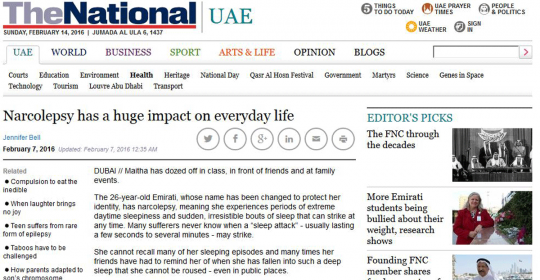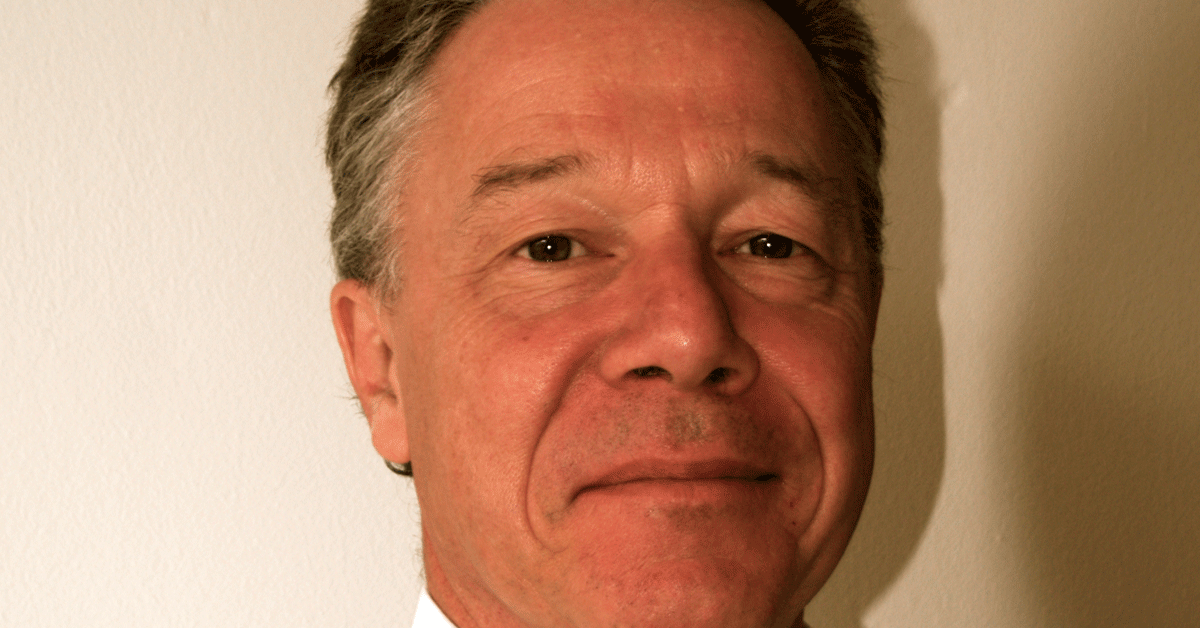
Narcolepsy has a huge impact on everyday life
The National | Jennifer Bell | February 7, 2016
DUBAI // Maitha has dozed off in class, in front of friends and at family events.
The 26-year-old Emirati, whose name has been changed to protect her identity, has narcolepsy, meaning she experiences periods of extreme daytime sleepiness and sudden, irresistible bouts of sleep that can strike at any time. Many sufferers never know when a “sleep attack” – usually lasting a few seconds to several minutes – may strike.
She cannot recall many of her sleeping episodes and many times her friends have had to remind her of when she has fallen into such a deep sleep that she cannot be roused – even in public places.
“It can be embarrassing,” she said. “I am this person who is very active, both in my personality and socially, and the person who likes to be involved and in the front row.
“Then you don’t want to be in the front row anymore in case you fall asleep.
“It is frustrating as it is obvious I am not in control of myself.”
She said attacks are often triggered by emotion – so when she is happy, excited or sad.
“This is scary,” she said. “Because it limits your joy and emotions in some ways.”
Maitha feel narcoleptics are misunderstood and sleeping episodes are often brushed off as a person being lazy.
“Narcolepsy is not visible, like any physical disabilities. Your heart goes out to someone sitting in a wheelchair or someone who cannot speak or cannot hear. But you don’t feel bad for someone who is sleeping,” she said.
Doctors say narcolepsy has a huge impact on everyday life.
“Attacks often cannot be controlled and they can happen in all kinds of situations,” said Prof Dr Derk Krieger, professor of neurology and cerebrovascular diseases at German Neuroscience Center in Dubai.
Worldwide, about 30 to 50 people in every 100,000 suffer from narcolepsy.

The prevalence in the UAE, said Dr Krieger, is likely to be similar.
However, the doctor believes the condition is not well known in the country.
“On one side it is not a common disease and on the other it is not a very obvious one,” he said. “From the outside, a patient may seem absolutely fine and healthy except in situations of an attack.
“Moreover, sufferers like to hide the disease, as it can be embarrassing.”

